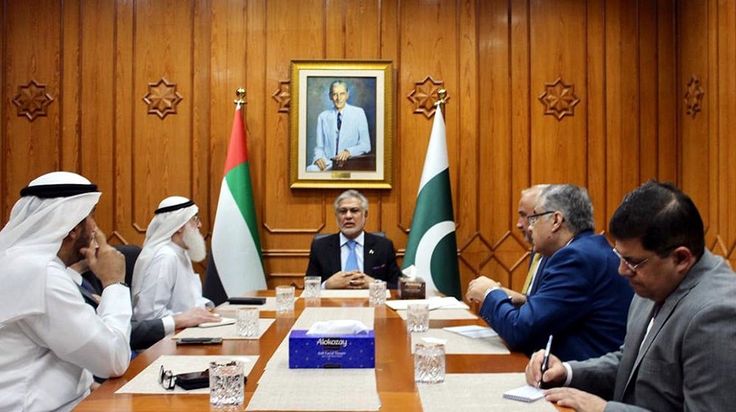Pakistan Joins Diplomatic Forces for Gaza’s Peace
In a new turn of events, Pakistan has intensified its diplomatic involvement in the ongoing Gaza conflict, aiming to establish lasting peace in the region. The Pakistani government, in collaboration with other Arab and Islamic countries, has joined a major push for peace following the unprecedented violence in Gaza. The move was highlighted during a recent meeting held in Istanbul, where the country’s leadership voiced its strong support for a two‑state solution and Palestine’s sovereignty.
Pakistan’s Diplomatic Stance
Pakistan has been a long‑standing advocate for the Palestinian cause, consistently calling for the recognition of Palestinian rights and sovereignty. In the latest round of diplomatic talks, Pakistan has pushed for several key objectives to stabilise the situation:
- Immediate Ceasefire and Israeli Withdrawal: Pakistan’s foreign policy has been firm on advocating for an immediate and complete ceasefire, followed by Israel’s withdrawal from the occupied Palestinian territories. This is in line with the consistent Pakistani stance of supporting Palestinian self‑determination, as stated in various UN resolutions.
- Unrestricted Humanitarian Access: Another critical component of Pakistan’s diplomatic efforts is ensuring humanitarian aid reaches Gaza without hindrance. Pakistan has stressed the importance of allowing international aid organisations full access to Gaza to provide essential food, medicine, and other resources for the civilians caught in the conflict.
The meeting also included discussions on the reconstruction of Gaza. Pakistan has expressed its commitment to playing a role in Gaza’s post‑conflict reconstruction, supporting both the restoration of its infrastructure and rebuilding the lives of its people.
Support for a Multinational Stabilisation Force
A major aspect of the diplomatic push is Pakistan’s support for the creation of a Multinational Stabilisation Force in Gaza. This proposed force, under the auspices of the United Nations, would be tasked with maintaining peace and security in the region, overseeing humanitarian relief efforts, and supporting Gaza’s reconstruction.
- Security Assistance: Pakistan’s role in peacekeeping missions around the world makes it a potential candidate for participation in the multinational force. With its rich history of contributing troops to UN peacekeeping missions, Pakistan’s involvement in the force would be seen as a natural step.
- Border and Infrastructure Management: Pakistan’s leadership has also shown an interest in playing a part in managing Gaza’s borders and helping restore vital infrastructure. This aligns with Pakistan’s vision of a stable and secure Palestinian state.
Despite its strong support for Palestinian independence, Pakistan faces the challenge of balancing its commitments to international peacekeeping with domestic sentiment. There is strong public support in Pakistan for a pro‑Palestinian stance, and any peacekeeping role must align with these values to maintain public approval.
Key Diplomatic Objectives for Pakistan
Pakistan’s main diplomatic objectives for the Gaza peace initiative include:
- A Fair and Just Solution for Palestinians: Pakistan remains committed to the establishment of a sovereign Palestinian state based on pre‑1967 borders, with Jerusalem (Al‑Quds Al‑Sharif) as its capital. This reflects Pakistan’s unwavering support for UN resolutions that call for Palestinian self‑determination.
- Strengthening Ties with Arab and Islamic Nations: By supporting this diplomatic push, Pakistan strengthens its ties with Arab nations and other Islamic countries. This collaboration in the peace efforts showcases Pakistan’s commitment to collective peace efforts in the region.
- Contributing to Long‑Term Stability in the Middle East: Pakistan’s involvement in the stabilisation force would mark a significant step in its foreign policy, extending beyond regional diplomacy to a more active role in Middle Eastern affairs.
Implications for Pakistan’s Foreign Policy
Pakistan’s decision to participate in a multinational peacekeeping force represents a shift in its foreign policy, one that could redefine the nation’s role in international peace processes. While Pakistan has historically been vocal in its support for Palestine, the new diplomatic push signals its intention to actively participate in efforts that could shape the future of Gaza. This move aligns with Pakistan’s broader objective of becoming a key diplomatic player in regional and global peace initiatives.
By participating in peacekeeping efforts, Pakistan could set the stage for future involvement in multilateral peace and stability efforts worldwide. The country’s strategic interest in securing a lasting resolution to the Gaza conflict reflects its desire for a more significant role in the global political landscape.
The Path Forward
The outcome of Pakistan’s efforts in the diplomatic push for Gaza peace remains uncertain. However, one thing is clear: Pakistan’s leadership is committed to working with international partners to bring about a peaceful, sustainable resolution to the conflict. This could involve diplomatic, humanitarian, and peacekeeping efforts over the coming months, as the international community looks for ways to bring lasting stability to Gaza.
While Pakistan continues to advocate for a two‑state solution and Palestinian independence, it is also preparing for the next phase of its involvement in Gaza’s reconstruction and peacekeeping efforts. The next steps in Pakistan’s diplomatic push will be crucial in shaping the future of Gaza and the broader Middle Eastern geopolitical landscape.

